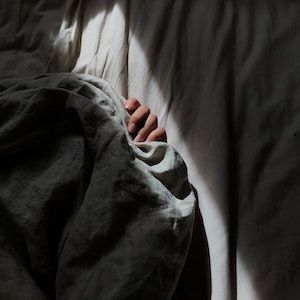Sleep Disorder May Increase Short-Term Risk for Late-Onset Dementia
Previous smaller studies have suggested a link between sleep disorders and dementia.

A new cohort study suggests that a hospital-based sleep disorder diagnosis may indicate short-term risk for dementia.
“Several smaller, community-based studies have suggested a link between sleep disorders and dementia with a focus on sleep as a modifiable risk factor for dementia,” wrote the study investigators, led by Line Damsgaard, MD, of the Danish Dementia Research Centre in Copenhagen. “Studies on neurodegenerative diseases are prone to reverse causation, and few studies have examined the association with long follow-up time.”
As such, they explored the possible associations between sleep disorders and late-onset dementia.
The Method
To do this, Damsgaard’s team extracted data from the Danish National and Public Health registries, including the Danish National Patient Registry (DNPR), the Danish Psychiatric Central Research Register (DPCRR), and the Danish National Prescription Registry (DNPrR).
They included all patients born between 1928-1953 and living in Denmark as of January 1st, 1978. As their focus was on late-onset dementia, they excluded patients who were diagnosed prior to age 65. They included patients from their 50th birthday between 1978-2018.
Follow up of these patients concluded on the date of dementia diagnosis, emigration, death, or December 31st, 2018. As such, the entire cohort consisted of 1,491,276 people.
Individuals were considered exposed to a sleep disorder if they were given a hospital-based diagnosis after the age of 50.The team defined dementia onset as “the date of a first registered primary or secondary dementia diagnosis in the DNPR or DPCRR or the date of the first redeemed prescription for anti-dementia medication in DNPrR.”
Results
Their analysis of the DNPR showed that 41,704 persons had a sleep disorder diagnosis, with 1,235 receiving a subsequent dementia diagnosis.
They found that those with any sleep disorder had a 17% increased risk of dementia (IRR, 1.17; 95% CI, 1.11-1.24) when compared with people without a sleep disorder, following adjustment for age, sex, calendar year, highest attained educational level at age 50, and somatic and psychiatric comorbidity.
Furthermore, the risk of dementia significantly increased 0.5 years following diagnosis of any sleep disorder diagnosis (IRR 1.35; 95% CI, 1.25-1.47); however, this association after 5 years of diagnosis was non-significant (1.05; 95% CI, 0.97-1.13).
“While there was not a statistically significantly increased IRR of dementia for women with any sleep disorder, the fully adjusted IRR of dementia for men with any sleep disorder was 1.25 (95% CI 1.17-1.34) compared to men with no sleep disorder,” the investigators wrote.
They also noted that the age at dementia diagnosis for the sleep disorder subgroup was 75.6 years, and 76.8 years for the non-exposed group.
“Our findings show an increased short-term risk of dementia following a hospital-based sleep disorder diagnosis, while we found weaker evidence of a long-term risk,” Damsgaard and colleagues wrote. “This could potentially point towards sleep disorders as an early symptom of dementia.”
Nevertheless, they acknowledged that additional research is needed to distinguish sleep disorders as an early symptom of dementia, a risk factor, or both.
The study, “Hospital-diagnosed sleep disorders and incident dementia: a nationwide observational cohort study,” was published online in The European Journal of Neurology.